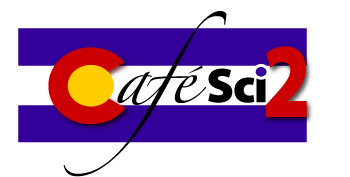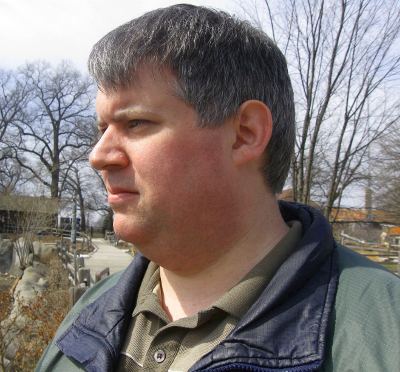|
We are delighted that Dr. Chrisomalis' visit to the Casfe Sci2 is taking place in conjunction with the 114th annual meeting of the American Anthropological Association in Denver on 18-22 November 2015. Our thanks to Valerie V Feria-Isacks (Center for Applied Anthropology, Foothill College) and Andrew Tarter (University of Florida) for making the arrangements. We welcome AAA attendees to our Café! |
|
In his famous essay, ‘Cargo cult science’, the physicist Richard Feynman used the anthropological concept of the cargo cult to illustrate the dangers of those who adopt the trappings of science without understanding the fundamental nature of the enterprise. The risk of self-delusion, he argued, was greatest when this form-without-function was followed mindlessly by scientists: ‘The first principle is that you must not fool yourself – and you are the easiest person to fool.’ Forty years later, anthropology’s own status as a science is in question. Pseudoscientific ideas abound - claims of ancient aliens and lost civilizations on the History Channel suggest that there are a lot of self-deluded fools. Feynman didn’t think much of social science, because of its annoying lack of laws, but he was wrong. We can and do scientific anthropology as long as we don’t fool ourselves. We only need to be able to ask What would convince me that I’m wrong? and Why should I believe I’m right? In this talk, I will show, using linguistic evidence, how non-specialists can think critically about pseudoscientific ideas in anthropology, and why it important to care about anthropological junk science in the media. Linguistic anthropology is particularly open to spurious claims of cultural contact across thousands of years and kilometres because most people are not linguists, so it is possible to make superficially plausible claims with limited knowledge. Against this position, it is possible to show that with a little knowledge and a critical eye, we can separate verifiable long-distance similarities – the remarkable new discovery that Navajo is related to some languages of central Siberia – from wildly implausible claims, such as that the Maya were descended from Egyptians. Learning how to think about linguistic evidence for cultural contact is a powerful inoculation against bunk. |

 Dr. Stephen Chrisomalis is an Associate Professor of Anthropology at Wayne State University in Detroit, Michigan. He is a linguistic and cognitive anthropologist who earned his PhD in anthropology from McGill University in Montreal in 2003. His research integrates historical and archaeological data with the study of contemporary societies, and he has published two books and eighteen articles. His primary research interest is the comparative and cognitive anthropology of numbers and mathematics; his book, Numerical Notation: A Comparative History, a cross-cultural analysis of written number systems, was published by Cambridge University Press in 2010 to rave reviews. He has conducted long-term field research with the Math Corps enrichment program in Detroit. He is the author of the blog
Dr. Stephen Chrisomalis is an Associate Professor of Anthropology at Wayne State University in Detroit, Michigan. He is a linguistic and cognitive anthropologist who earned his PhD in anthropology from McGill University in Montreal in 2003. His research integrates historical and archaeological data with the study of contemporary societies, and he has published two books and eighteen articles. His primary research interest is the comparative and cognitive anthropology of numbers and mathematics; his book, Numerical Notation: A Comparative History, a cross-cultural analysis of written number systems, was published by Cambridge University Press in 2010 to rave reviews. He has conducted long-term field research with the Math Corps enrichment program in Detroit. He is the author of the blog